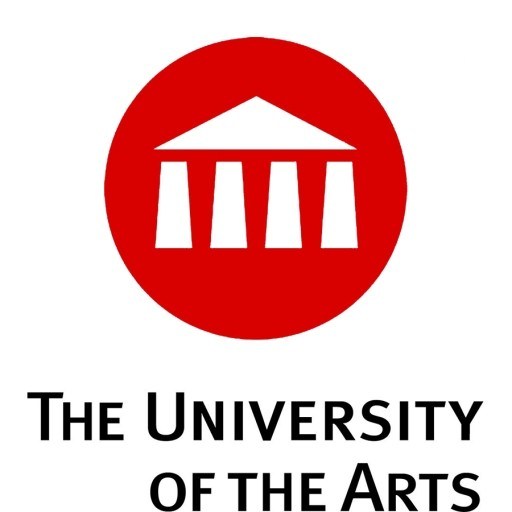Photos of university / #uflorida
The three-semester, Masters of Science in Sustainable Design (MSD) leads to a University of Florida master's degree in the specialized field of sustainable design. Open to applicants with a bachelor's degree in any field, it is an excellent opportunity for enhancing your educational background, professional qualifications or teaching credentials through individualized, in-depth and interdisciplinary research in specific areas under the guidance of faculty specialists.
The program draws upon the diverse strengths of the College of Design, Construction and Planning (DCP) in architecture, building construction, historic preservation, interior design, landscape architecture and urban and regional planning. The program includes a minimum of 36 credits of course work, with eight credits applied toward a Thesis or Masters Research Project (MRP)
Why Choose a Low Residency-Distance Learning Program?
The Low Residency-Distance Learning format is ideal for students who have work or personal obligations that make relocating for further education impractical. Combining interactive online tools with intensive face-to-face workshops allows you to interact with students and instructors from around the globe. You have the added confidence that many studies in the last ten years have demonstrated that there is no significant difference in the learning outcomes experienced by students in a traditional classroom versus those in a distance-learning context. In fact a 12 year study by the on average, students in online learning conditions performed better than those receiving face-to-face instruction.
In addition, the asynchronous on-line content delivery (an open, flexible delivery) adapts to the challenges of your schedule. The MSD program is one of the few degrees in its class that blends online learning with a face-to-face interaction program between students and faculty. The cohort gathers in the fall and summer semesters at our Gainesville campus and at an international location for workshops in the spring semester built around the design studio project.
When you enroll in the MSD program, you have the same rights and privileges as any other UF graduate student such as access to our excellent digital library database, and academic advising.
Program Mission and Overview: The University of Florida’s Sustainable Design program is dedicated to educating future leaders in creating environmentally responsible, socially equitable, and economically viable built environments. This interdisciplinary curriculum combines principles of architecture, landscape architecture, urban planning, and environmental science to equip students with the knowledge and skills necessary to develop innovative sustainable solutions. Students learn to assess the environmental impact of design choices, integrate renewable energy technologies, and promote resilient community development. Through hands-on projects, research opportunities, and collaboration with industry experts, the program fosters a comprehensive understanding of sustainable design practices applicable to a variety of contexts.
Curriculum and Courses: The program offers a rigorous blend of theoretical knowledge and practical skills. Core courses include Sustainable Architecture, Ecological Design, Green Building Materials, Energy-Efficient Systems, and Urban Sustainability Planning. Elective options allow students to delve into specialized areas such as renewable energy integration, water resource management, and sustainable urban transportation. The curriculum emphasizes the use of advanced modeling tools, life-cycle assessment techniques, and Building Information Modeling (BIM) to optimize sustainable design strategies. Throughout the program, students engage in project-based learning, working on real-world proposals that address current environmental challenges faced by communities.
Research and Hands-on Experience: Students are encouraged to participate in cutting-edge research projects that explore innovative sustainable technologies and design methodologies. The program maintains collaborations with industry partners, governmental agencies, and nonprofit organizations to provide internship opportunities and real-world project experiences. Workshops, lab sessions, and site visits further enhance understanding of sustainable practices in various contexts. Graduates gain practical experience in designing energy-efficient buildings, implementing eco-friendly materials, and developing resilient infrastructure plans, preparing them for leadership roles in sustainable development.
Career Opportunities: Graduates of the Sustainable Design program are well-positioned to pursue careers in architecture firms, urban planning agencies, environmental consultancy, government planning departments, and non-governmental organizations. They can work as sustainable design consultants, green building auditors, sustainability coordinators, or urban planners specializing in eco-friendly development. The program’s comprehensive focus on interdisciplinary collaboration and practical application ensures that graduates are equipped to make significant contributions toward creating sustainable, livable communities that balance environmental stewardship with human needs.
Admissions and Further Information: Interested applicants are encouraged to review the program prerequisites, application procedures, and deadlines on the University of Florida’s official website. The program values diversity, innovation, and commitment to sustainability principles. For more detailed information about coursework, faculty, research initiatives, and admission requirements, prospective students should consult the university’s official Sustainable Design program page.
Program Requirements for the MSc in Sustainable Design at the University of Florida:
The MSc in Sustainable Design at the University of Florida is structured to provide students with comprehensive knowledge and practical skills in sustainable development, environmentally conscious design, and innovative solutions for ecological challenges. To successfully complete the program, students must fulfill the following requirements:
-
Core Courses: Students are required to complete a series of foundational courses that cover key aspects of sustainable design, including principles of green architecture, sustainable materials, energy efficiency, environmental systems, and ecological planning. These courses ensure students have a solid theoretical understanding of sustainability concepts and their applications.
-
Elective Courses: In addition to core courses, students must select a set of elective courses from approved options that align with their interests and career goals. Electives may include topics such as urban sustainability, renewable energy systems, behavioral sustainability, and ecological economics.
-
Research Project or Thesis: A significant component of the program involves conducting original research on a sustainability-related topic. Students must plan, execute, and present a research project or thesis under the supervision of faculty advisors. This endeavor aims to develop students’ research skills, critical thinking, and ability to apply theoretical knowledge to real-world problems.
-
Practical Experience: To enhance experiential learning, students are encouraged to participate in internships, cooperative education programs, or collaborative projects with industry partners. Such practical engagements provide insights into professional practices and foster industry connections.
-
Comprehensive Examination or Final Review: Prior to graduation, students must pass a comprehensive exam or participate in a final review session to demonstrate their mastery of the program content and their readiness to contribute to sustainable design fields.
-
Residency and Credit Hour Requirements: The program typically spans at least four semesters (or as specified by the university), requiring the completion of a minimum number of graduate credit hours, generally around 30-36 semester credits, depending on transfer credits or prior coursework.
-
Ethical and Professional Standards: Students are expected to adhere to the ethical guidelines and professional standards established by the university and relevant industry bodies, promoting responsible and sustainable practices.
Overall, the MSc in Sustainable Design combines rigorous coursework, research, practical experience, and ethical standards to prepare graduates for leadership roles in sustainable development, environmental planning, and green architecture sectors.
The University of Florida offers various financial aid options to support students enrolled in sustainable design programs. Undergraduate students can apply for federal and state financial aid programs such as Federal Pell Grants, Federal Supplemental Educational Opportunity Grants (FSEOG), and Florida Bright Futures Scholarships, which provide significant assistance based on academic merit and financial need. Additionally, students are encouraged to explore institutional scholarships specific to the College of Design, Construction and Planning, which includes sustainability-focused initiatives and awards aimed at promoting environmental stewardship and innovative design. Graduate students pursuing advanced degrees in sustainable design may qualify for Graduate Assistantships, Research Assistantships, or Teaching Assistantships, which typically include tuition waivers and stipends to support their academic activities. The university also offers loan programs, including federal student loans such as Direct Subsidized and Unsubsidized Loans, which help cover educational expenses beyond scholarships and grants.
Furthermore, there are work-study opportunities on campus that allow students to work part-time jobs related to their field of study, gaining practical experience while earning income to fund their education. For international students, scholarship options may be more limited; however, some competitive merit-based scholarships are available, and students are advised to seek external funding sources or private scholarships aimed at sustainability and environmental innovation. The university’s financial aid office provides comprehensive counseling and resources to help students navigate the application process and identify the most suitable funding options for their individual circumstances. Students are also encouraged to explore external grants, sponsorships, and industry partnerships that support sustainability initiatives. Overall, the UF sustainable design program aims to make education accessible through a combination of federal aid, university scholarships, work opportunities, and external funding, all designed to reduce financial barriers and promote the development of environmentally responsible designers and architects.
The University of Florida offers a comprehensive program in Sustainable Design, emphasizing the development of environmentally responsible and resource-efficient design solutions. This program is designed to equip students with the knowledge and skills necessary to address complex sustainability challenges in various design fields, including architecture, landscape architecture, and urban planning. Through a multidisciplinary approach, students learn principles of sustainable development, energy efficiency, ecological systems, and sustainable materials. The curriculum incorporates coursework in green building practices, environmental impact assessment, renewable energy integration, and sustainable community design. Students also engage in hands-on projects, internships, and research activities that foster practical experience and innovation in sustainable design solutions. The program aims to prepare graduates for careers that contribute positively to environmental preservation and social well-being while meeting the demands of contemporary design industries. Collaboration with industry professionals and involvement with cutting-edge research centers at the university provide students with access to the latest advancements and best practices in sustainability. The program is suitable for individuals interested in making a significant impact through sustainable design practices and seeks to foster leadership in creating resilient, healthy, and sustainable environments for the future.









